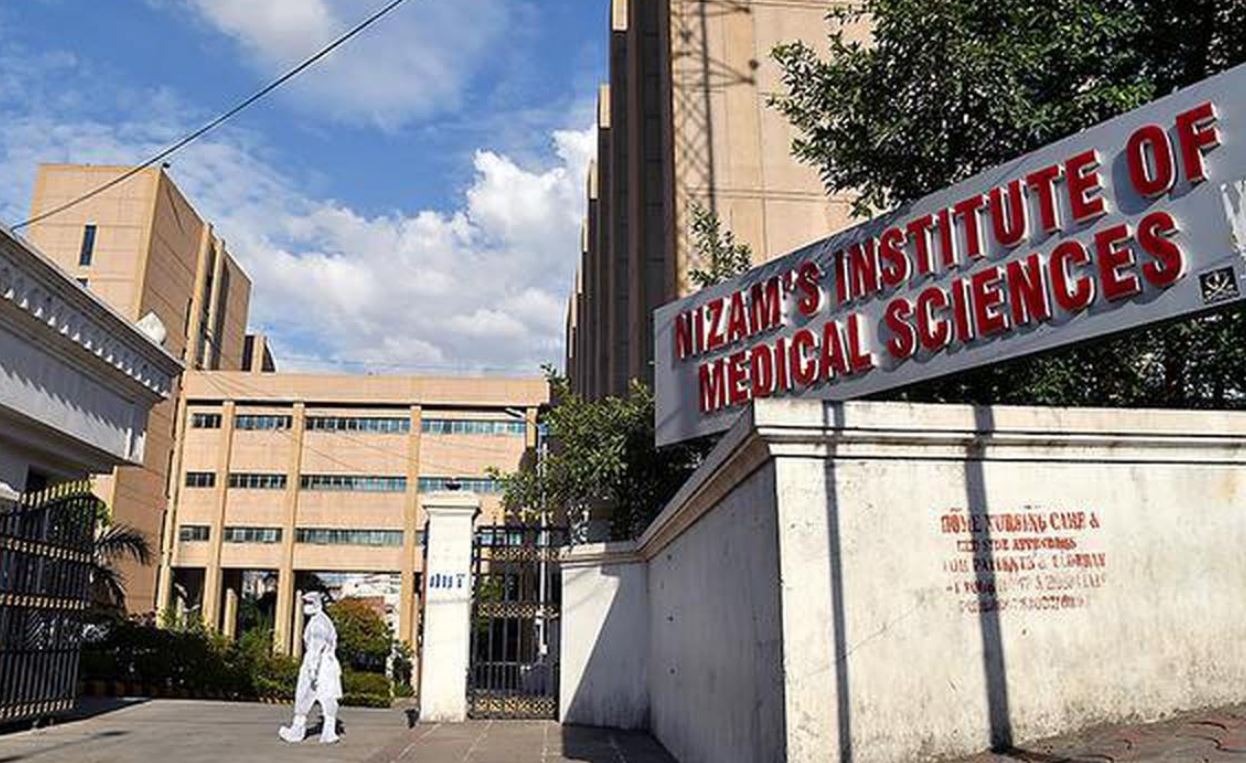Hyderabad:As India embarks on an ambitious plan to expand genetic education, tracing genetic disorders and diagnostics, Hyderabad is emerging as a key contributor. Research institutes like Centre for DNA Fingerprinting and Diagnostics (CDFD), Centre for Cellular and Molecular Biology (CCMB) and Nizam’s Institute of Medical Sciences (Nims) are playing a crucial role by facilitating genome sequencing, identifying patients and providing counselling and therapeutic support to families.
This was highlighted in an event organised by CDFD in rememberance of Prof. S.S. Agarwal, who established the first department of medical genetics in India at the Sanjay Gandhi Postgraduate Institute of Medical Sciences, Lucknow.
Dr Shubha Phadke, former HoD of the department, who led the event, said the significance of medical genetics had increased over the years. “Now, even individuals not in medicine, and common citizens, want to know more about genome and exome sequencing and possibilities of genetics in identifying health disorders. This should encourage others to take an interest in the initiatives undertaken by the government,” Dr Phadke said.
Three major initiatives are being undertaken with the help of funds provided by the Union department of biotechnology (DBT). From large-scale genome sequencing to expanding rural access to diagnostics, these projects are: GenomeIndia UMMID (Unique Methods of Management and treatment of Inherited Disorders) and Mission Program on Paediatric Rare Genetic Disorders (PRaGeD), alongside the National Policy for Rare Diseases (NPRD) 2021.
The GenomeIndia Project is a nationwide scientific collaboration led by the Centre for Brain Research (CBR) in Bengaluru. For the first time, researchers sequenced the entire genome of 10,000 individuals from a pool of over 20,000 samples collected across India’s ethno-linguistic and socio-cultural spectrum.
The project, involving 20 research institutes, has uncovered over 130 million genetic variants, many unique to Indian populations. “The linguistic and geographical map of the country can be seen as a proxy for genetic diversity as well; various linguistic groups are also closer in genetic make-up, our study found,” said Dr Divya Tej S. from CCMB.
While GenomeIndia focuses on data and discovery, the UMMID aims to ensure that the benefits of genetic science reach every corner of India. Launched by the DBT in 2019, UMMID works through a three-tiered model: NIDAN Kendras (diagnostic centres), training centres and outreach centres in aspirational districts.
“This project, like its name, has instilled hope among individuals with rare diseases. It is also the programme that leads to a large scale capacity building, which is necessary, considering the minimal information doctors have about rare diseases. Around 80 per cent of rare diseases are genetic disorders,” said Dr Prajnya Ranganath from Nims.
In its first phase, five NIDAN (National Inherited Disorders Administration) kendras and seven training centres were set up across leading government institutions. Nine outreach centres provided antenatal screening to nearly 94,500 pregnant women and newborn screening to over 61,600 infants for congenital and metabolic disorders. In 2024, the second phase was launched, scaling up to 33 new NIDAN Kendras and three additional training centres.
This project has grounded genetics research in Hyderabad, being established in CDFD and Nims, both of which together function as a centre of excellence (CoE) under the National Policy for Rare Diseases. While CDFD trained faculty from across India in the first phase and provided screening in Yadgir and Raichur districts in Karnataka, Nims established a NIDAN Kendra and now serves as a training centre offering a fellowship in genetic diagnostics.
Another transformative initiative is PRaGeD (Mission Programme on Pediatric Rare Genetic Disorders). Led by CDFD in collaboration with 15 institutions, PRaGeD is tackling the burden of rare genetic diseases (RGDs), which collectively affect more than 70 million Indians, particularly children. India sees a high prevalence of rare, recessive disorders.
“Over the past year, 1,800 families with unexplained paediatric conditions were enrolled. Advanced technologies like whole exome and genome sequencing enabled scientists to diagnose over 200 rare disorders, some never previously described. For example, mutations in genes like CDK5 and ADGRG1 were linked to severe neurological conditions through functional studies in yeast and cell models,” said Dr Ashwin Dalal from CDFD.
Under the National Policy for Rare Diseases (NPRD), 2021, the Union health ministry aims to reduce the burden of rare diseases through early detection and affordable care. There are 12 other centres of excellence across the country besides CDFD-Nims and provide carrier and prenatal screening, genetic counselling, diagnostics for inborn metabolic disorders and even day-care treatment.
“Each eligible patient receives financial support up to ₹50 lakh for treatment under NPRD. So far, 483 patients have been registered and 151 patients are receiving funding for conditions such as Gaucher disease, Wilson disease, cystinosis, homocystinuria and primary immunodeficiencies,” said Dr Shagun Aggarwal from Nims.

